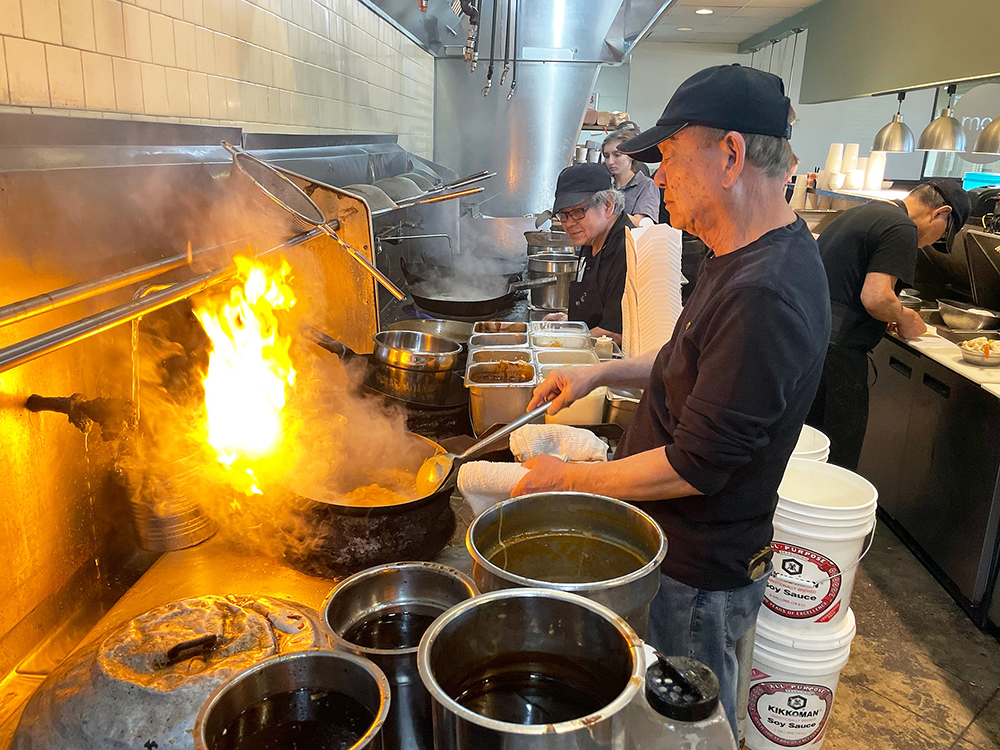Eddie Pao no longer directs motion pictures like he did in Taiwan. Instead, Pao, the owner of Mosa Asian Bistro, directs his kitchen staff.
Pao — aka “Mr. Eddie” — has been synonymous with Asian cuisine in Memphis for almost half a century. This includes his famous hot and sour soup as well as his wonton and pad thai dishes.
Pao, 79, who still comes to work every day at his restaurant at 850 South White Station Road in Eastgate Shopping Center, has manned five other restaurant locations since he opened his first Memphis spot in the late ’70s.
In addition to serving lunch and dinner, Mosa caters events almost daily. The restaurant prepares meals for St. Jude Children’s Research Hospital and for sports teams, including the University of Memphis Tigers.
If he’s not in the office, Pao is helping out in the kitchen making sure his fresh menu items are properly prepared.
“I have known Mr. Eddie since I was a kid,” says Jonathan Mah, owner of SideStreet Burgers in Olive Branch, Mississippi. “He has the best hot and sour soup in the city.”
The soup is “the perfect blend of sweet and spicy and sour.”
Mah, who had “the spicy dumplings and Eddie’s favorite noodles” on his last visit to Mosa, says, “I love the spice in the dumplings.”

Eddie’s Way
Born in Hunan province in China, Pao and his family moved to Taiwan when he was 5 years old.
Pao was a rebel growing up; he wanted to do things his way. “When I was little, to tell you the truth, I didn’t follow after my mother and father too much because they were very old-tradition people,” he says.
His parents showed him their way of doing things. They “wanted to go this way,” Pao says, but he thought, “Maybe I can go this way faster.”
Pao’s father worked as an accountant for the government, which was under Chiang Kai-shek, but Pao’s family wasn’t wealthy.
They had “very little money,” Pao says. Their extended family of 40 people lived in one house. Some of them had to sleep on the floor, he recalls.
Pao didn’t like to study. “I go to school, but I don’t follow the teacher too much. Just like I don’t follow my daddy and momma too much.”
He played basketball, and he loved comic books, including ones about Tang Sanzang, a 16th-century Buddhist monk.
Pao’s grandfather remarried after his wife died. Shing Tai Tai, which means “new grandma,” was the cook in the family. “She liked to cook soup for us. Tofu with yellow sprouts.”
Though he serves them in dishes at Mosa, Pao stays away from sprouts. “I don’t eat that any more. Ten years I eat that every day. I miss her cooking, but I don’t eat that.”
“He’ll take out the sprouts,” adds Pao’s daughter, Michelle Pao Levine, who along with her brother, Alex Pao, helps run Mosa.
Another great cook in Eddie’s life was his mother-in-law. She made dishes Pao later would serve in his restaurants: Szechuan chicken, Kung Pao chicken, and General Tso’s chicken.
Eddie didn’t do any of the cooking back then: “I watched and I helped clean up.”
But, he says, “She showed me how to make recipes. How to cook.”
Which came in handy later. “My sauce is different from every other restaurant ’cause my sauce is homemade and the recipe came from her.”
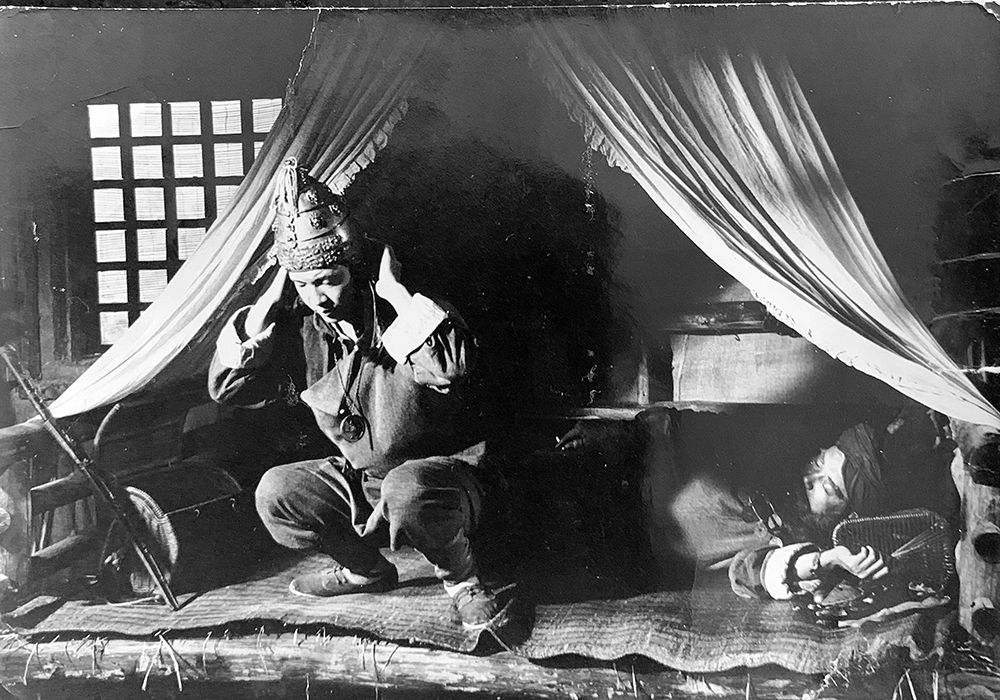
Lights, Camera, Action!
Following high school, Eddie enrolled in the motion picture department at an art college because he wanted to learn to make movies. “I always had an imagination from reading comic books.”
After he graduated, Eddie got a job at a privately owned motion picture studio in Taiwan.
He followed the director around at first. “One month and a half later, the director said, ‘Hmmm. How come you know that much?’”
The director was so impressed he said, “You can be my assistant director on my next movie.”
In one movie Eddie worked on as assistant director, the main director, who was from Hong Kong, only spoke Cantonese. But the actor in the movie only spoke Mandarin. So, Eddie became the translator. “The actor and the director cannot understand each other. I’m very lucky. My grandmother is Cantonese, so I can speak it. And I speak Mandarin well; that’s my own language. A lot of things depended on me to finish the movie.”
Eddie eventually moved up to become a director. He believes what he learned directing movies helped him later on in the restaurant business: how to prepare for what you want to make. And then after you make it, check to make sure you did it right, he says.
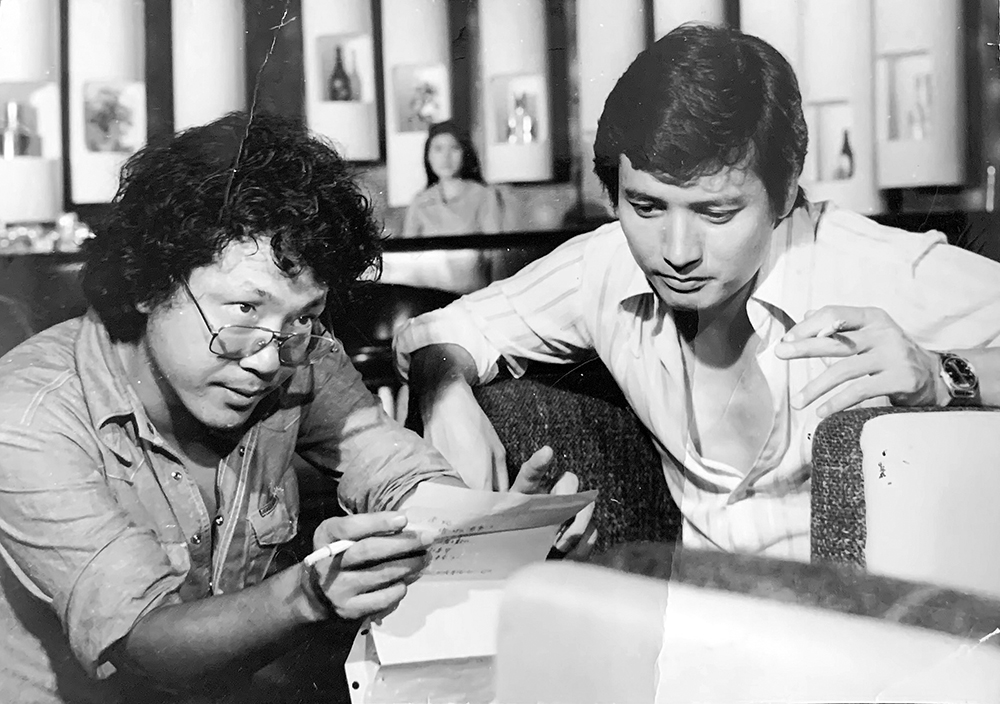
When he was 29, Eddie directed a kung fu movie about a 19th-century judge named Pao Ching Tien, or “Pao Kung,” which was his nickname.
Eddie, who isn’t a kung fu artist, says someone else on the set taught the actors how to “hit and kick.”
He also directed a movie with Charlie Chin, who was a heartthrob at the time. “He was a very handsome man.”
The film with Chin, a “very, very famous star” in Taiwan, was the last film Pao directed. He says Chin, who was “very nice” to him, told him he’d never cried before when he made a movie, but he couldn’t stop crying on the movie Eddie was directing. Eddie believes the plot rekindled memories from Chin’s own life.
Eddie also got in front of the camera. In one movie, he played the part of a student learning from a kung fu master, but he didn’t have to do any kung fu moves in the film.
From Movies to Memphis
In 1977, Eddie, his wife, and daughter, moved to Memphis, where his sister lived. He wanted to pursue the movie business in the United States, but he had a “language problem,” Eddie says. “I have to give it up. I have to make a living.”
It didn’t take him long to figure out what to do. “At that time I thought about my mother-in-law. I learned a lot from her.”
He thought, “Okay, I’ll open a restaurant.’’ Eddie began with “a very small restaurant” and “very little money” when he was 33 years old.
His first restaurant, which he bought from some friends who were anxious to sell it, was on Summer Avenue near Holmes Street.
He kept the previous restaurant’s name, which was “Formosa,” he says. “I didn’t need to change the name. I don’t need to spend more money.”
Eddie wouldn’t open the restaurant until he was satisfied with the food he was making. “I was testing until I was happy. And then I opened.”
“Prior to him opening, most of the other restaurants were serving Cantonese-style food,” Pao Levine says. “That food tends to not be spicy.”
“He brought spicy Chinese food to Memphis,” Alex says.
Eddie’s restaurant was an instant hit. “Many customers waited for almost an hour and a half, two hours. It was a small, nine-table restaurant.”
He stayed at that location for two years. In addition to enjoying the food, his customers taught him how to speak better English.
One customer, who worked for a bank, told Eddie he should open a bigger restaurant. Later, he told Eddie, “Hey, I found some place not too far from here. It’s bigger. Go get it.”
The man also told Eddie his bank would be happy to help him.
The new location on Summer Avenue near Highland Street had 24 tables and a bigger kitchen. People were waiting outside the first day when he opened the doors for business, Eddie says. All the tables filled up, and more people were “waiting for a table” a half hour later.
Over the years, Eddie opened other Formosa locations. One, which he later sold, is still on Quince Road. In 1995, he opened a Formosa in Germantown, but he later closed it because there wasn’t enough parking.
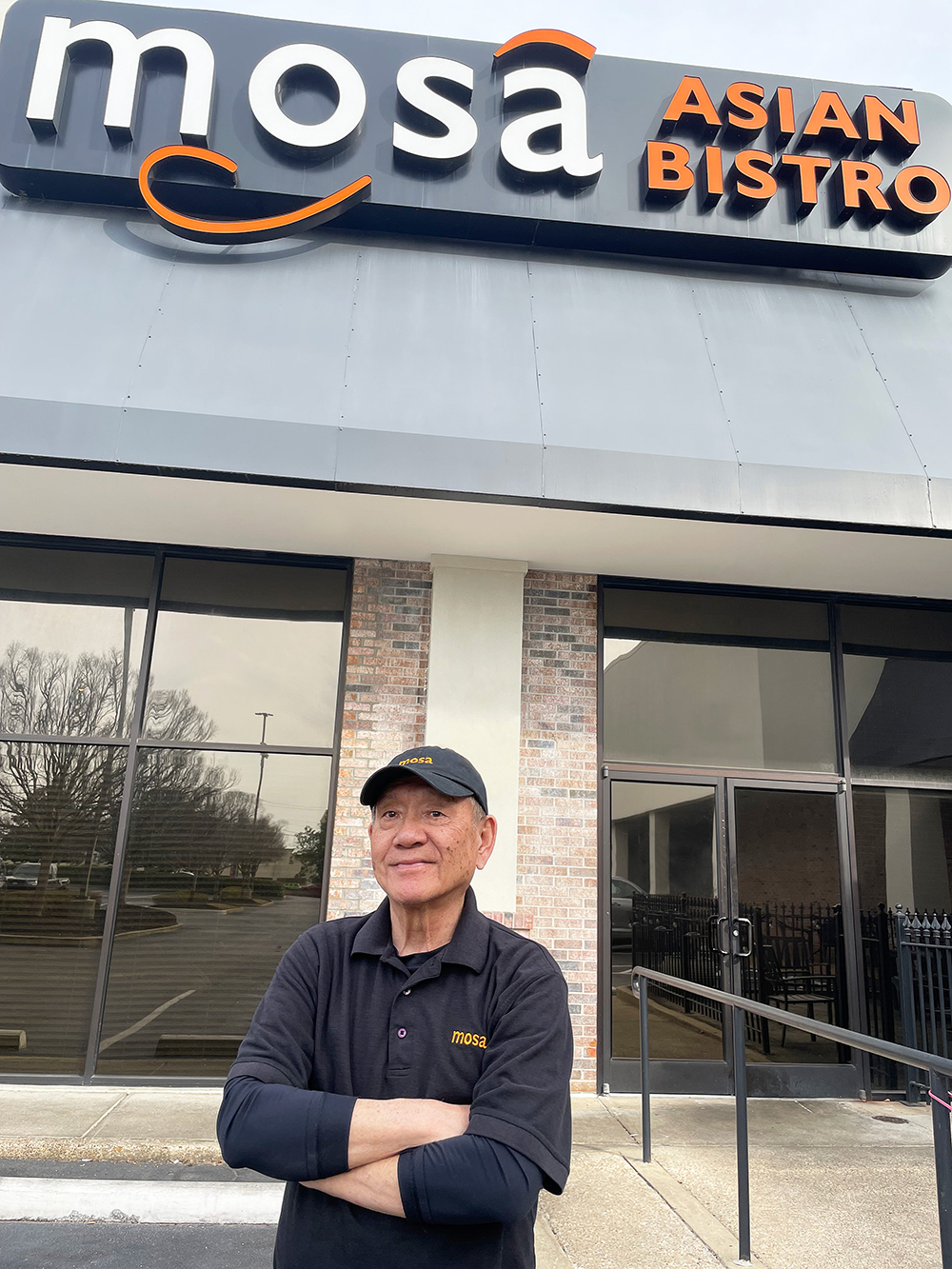
Making Mosa
In 2004, Eddie opened his first Mosa Asian Bistro on Poplar Avenue at Kirby Parkway. Pao Levine, who began working at Mosa after she graduated from college, says Mosa “kept the greatest hits from Formosa” and added the “best hits” of other styles of Asian cuisine. They served “Japanese, Thai, Vietnamese, and Korean” as well as Mandarin food.
Mosa was “more relaxed, more casual, and also a family atmosphere,” Alex says. “Formosa was a little more formal.”
The first Mosa didn’t start off with a bang. “Kirby was a tough location,” Pao Levine says. People were saying, “What is this Asian fusion? Pan Asian?”
But, she adds, “Within two months, we were a full house.”
Chinese restaurants were changing. The “tradition of an old-style sit-down full-service” Asian restaurant was dying out, Alex says.
Eddie never had a buffet at any of his restaurants. “He was always about fresh, made to order,” says Pao Levine. “Always. And still is.”
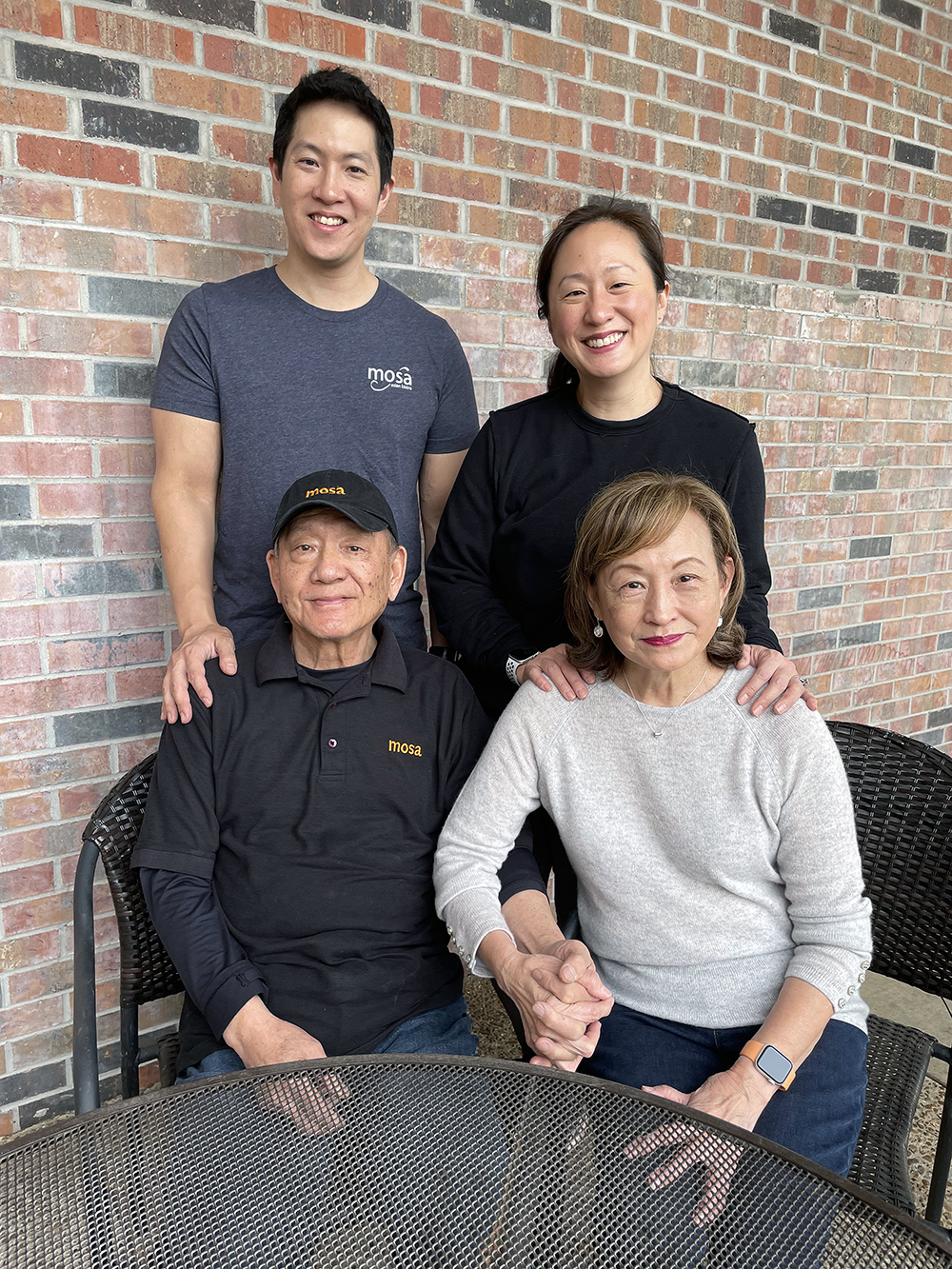
In 2008, Eddie opened his current Mosa location. It was in a better building with better parking and better visibility.
They still featured some items that Eddie sold at his first restaurant location, like hot and sour soup, spring rolls, sesame chicken, fried rice, and Szechuan chicken.
They also added new items, including a range of pad thai dishes, the “most well-known noodle dish in Thailand,” Pao Levine says. Thin rice noodles stir fried and sautéed in a soy peanut sauce.
Eddie learned a basic pad thai recipe, but he made his own version, which was spicier with bolder flavors.
Mosa also began serving pho. Their head chef, A-Ton, is from Vietnam.
Asian beef sliders made with mini challah buns from nearby Ricki’s Cookie Corner & Bakery is their newest item.
When they first opened the new Mosa location, Eddie’s wife Charleen made desserts, including blueberry tortes, cheesecake, and cupcakes. They even put in a commercial bakery for her.
“Most Asian mothers do not bake American-style desserts,” Pao Levine says. “Asian desserts tend to not be as sweet.”
Charleen “just taught herself” to bake, Pao Levine says. Their mother, who is “Dad times 10,” is “such a perfectionist. No one can pipe the cream the way she wants it.”
Mosa stopped selling desserts after Charleen stopped baking for the restaurant years ago. She says she’s too busy with the grandchildren.
In October 2013, Mosa was featured on the Cooking Channel’s Cheap Eats. Eddie made his Thai Rainbow Panang Curry with Chicken.
They closed the restaurant during the shoot. “My dad, you could tell he was in his element because he loved being on camera,” Pao Levine says.
The director was a bit standoffish, but that didn’t stop Eddie. “In between takes he would just walk up to the director’s chair and say, ‘Excuse me. Can I take a quick peek at what you’ve done?’ He was really curious about what kind of angle she took a shot. He was wondering what she was trying to capture.
“Half an hour later, they were best friends. She found out talking to Eddie that he was a film director. Between every take she’d ask him, ‘What do you think about this?’ ‘What do you think about that?’ He has such a great eye.”
